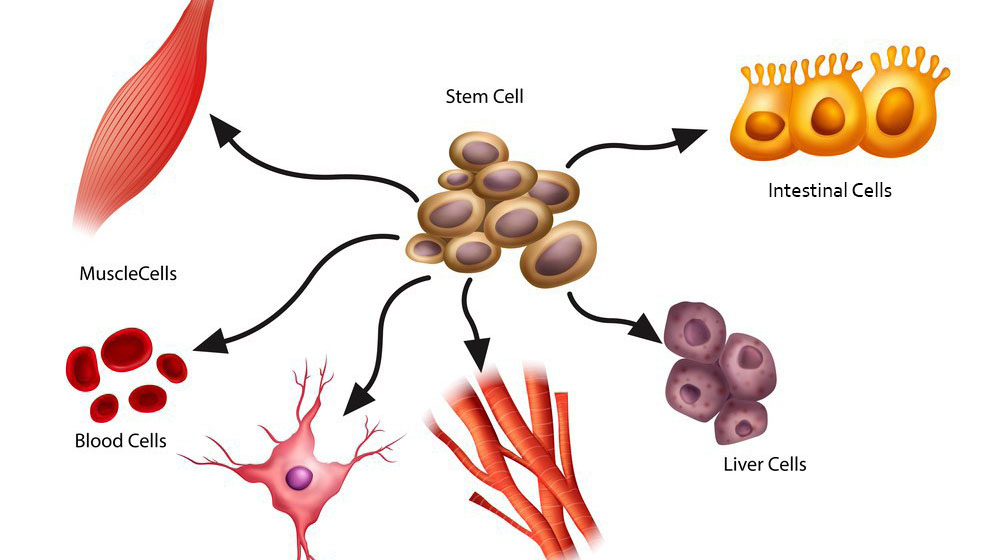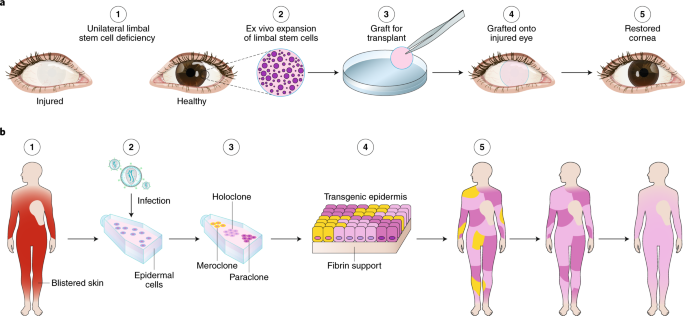Unveiling the Frontier: Advancements in Stem Cell Research

Stem cell research stands at the forefront
of scientific exploration, offering unprecedented insights into cellular
biology, regenerative medicine, and disease therapeutics. With each breakthrough,
researchers unlock new avenues for harnessing the regenerative potential of
stem cells to combat diseases, repair damaged tissues, and revolutionize
healthcare. In this comprehensive report, we delve into the latest advancements
in stem cell research, spanning from fundamental discoveries to cutting-edge
applications, ethical considerations, challenges, and future prospects.

Steam Cell
Fundamentals
of Stem Cell Research
Stem cells possess unique properties, including self-renewal and pluripotency, making them invaluable tools for studying development, tissue regeneration, and disease modeling. Key principles include:
Types of Stem Cells: Stem cells can be classified into embryonic stem cells (ESCs), adult stem cells, and induced pluripotent stem cells (iPSCs). ESCs are derived from the inner cell mass of blastocysts and have the potential to differentiate into any cell type in the body. Adult stem cells are found in specific tissues and contribute to tissue maintenance and repair. iPSCs are reprogrammed from somatic cells and exhibit pluripotent characteristics similar to ESCs.
Pluripotency and Differentiation: Pluripotent stem cells have the capacity to differentiate into various cell lineages, including ectoderm, mesoderm, and endoderm, representing the three primary germ layers. Directed differentiation protocols guide stem cells toward specific cell fates, enabling the generation of specialized cell types for regenerative medicine applications.
Regenerative
Medicine and Tissue Engineering: Stem cells hold
immense promise for regenerating damaged tissues and organs, offering potential
treatments for a wide range of diseases and injuries. Tissue engineering
approaches combine stem cells with biomaterial scaffolds and growth factors to
promote tissue regeneration and functional recovery in vivo.

Advances in stem cell research and therapeutic development
Advancements
in Stem Cell Research
Recent breakthroughs in stem cell research have propelled the field forward, enabling novel applications and therapeutic interventions:
Organoid Technology: Organoids are three-dimensional structures derived from stem cells that mimic the architecture and function of organs in vitro. Organoid models enable researchers to study organ development, disease mechanisms, and drug responses in a controlled environment, offering insights into human biology and disease pathology.
CRISPR-Cas9 Genome Editing: CRISPR-Cas9 technology has revolutionized genome editing, allowing precise modifications to the genetic code of stem cells. CRISPR-enabled genome editing enables the correction of disease-causing mutations, the generation of disease models, and the engineering of stem cells for therapeutic applications.
Cellular Reprogramming and Disease Modeling: iPSC technology enables the generation of patient-specific stem cells from somatic cells, providing a platform for disease modeling and drug discovery. iPSC-derived cell models recapitulate disease phenotypes and enable the screening of potential therapeutics in vitro, paving the way for personalized medicine approaches.
Stem
Cell-Based Therapies: Stem cell-based therapies
hold promise for treating a variety of diseases and conditions, including
neurodegenerative disorders, cardiovascular diseases, and musculoskeletal
injuries. Clinical trials utilizing stem cell transplantation for tissue repair
and regeneration have shown encouraging results, demonstrating the therapeutic
potential of stem cells in regenerative medicine.
Ethical
Considerations
Stem cell research raises ethical considerations related to the source of stem cells, embryo destruction, and consent for research participation. Key ethical considerations include:
Embryonic Stem Cell Research: The use of human embryonic stem cells (hESCs) raises ethical concerns regarding embryo destruction and the beginning of human life. Ethical frameworks and guidelines govern the use of hESCs in research and clinical applications, emphasizing informed consent, transparency, and adherence to ethical standards.
Informed Consent and Donor Rights: Donor consent is essential for the procurement and use of biological materials, including stem cells, in research and medical treatments. Informed consent procedures should ensure that donors understand the purpose of the research, potential risks and benefits, and their rights regarding the use of their biological samples.
Equitable
Access and Distribution: Ensuring equitable access
to stem cell-based therapies and research opportunities is essential to
mitigate disparities in healthcare delivery and patient outcomes. Ethical
frameworks advocate for fair distribution of resources, transparency in
research funding, and collaboration among stakeholders to promote equitable
access to stem cell technologies.

Ethical and Safety Issues of Stem Cell-Based Therapy
Challenges
and Future Directions
Despite the remarkable progress in stem cell research, several challenges remain to be addressed to realize the full potential of stem cells in regenerative medicine:
Safety and Efficacy: Ensuring the safety and efficacy of stem cell-based therapies is paramount for their clinical translation. Addressing concerns related to tumorigenicity, immune rejection, and off-target effects is essential to advance stem cell therapies from preclinical studies to clinical trials and ultimately to widespread clinical use.
Regulatory Oversight and Standardization: Regulatory oversight and standardization of stem cell-based therapies are essential to ensure their quality, safety, and effectiveness. Regulatory agencies play a crucial role in evaluating stem cell products, establishing guidelines for manufacturing and quality control, and monitoring post-market surveillance to assess long-term outcomes and safety profiles.
Ethical and Societal Implications: Ethical and societal implications of stem cell research, including debates over embryo rights, genetic modification, and commodification of human tissues, require ongoing dialogue and engagement with stakeholders. Ethical frameworks should address issues of social justice, patient autonomy, and public trust to guide responsible conduct and governance of stem cell research and applications.
Translation to Clinical Practice: Bridging the gap between benchtop research and clinical practice is essential for the successful translation of stem cell-based therapies. Collaborative efforts among researchers, clinicians, industry partners, and regulatory agencies are needed to overcome translational barriers, streamline regulatory pathways, and facilitate the integration of stem cell therapies into standard clinical care.
Education
and Public Awareness: Educating healthcare
professionals, policymakers, and the public about the potential benefits and
risks of stem cell research is essential for informed decision-making and
public acceptance. Public awareness campaigns, educational outreach programs,
and evidence-based communication strategies can foster understanding, trust,
and support for stem cell research and its applications in regenerative
medicine.
Editor’s
Thoughts:
Advancements in stem cell research have
unlocked new frontiers in regenerative medicine, offering hope for the
treatment of previously incurable diseases and injuries. From fundamental
discoveries in stem cell biology to cutting-edge applications in disease
modeling and therapeutic interventions, stem cell research continues to push
the boundaries of science and medicine. While challenges persist in ensuring
safety, efficacy, and ethical conduct, the future of stem cell research holds
immense promise for transforming healthcare and improving the lives of patients
worldwide.


